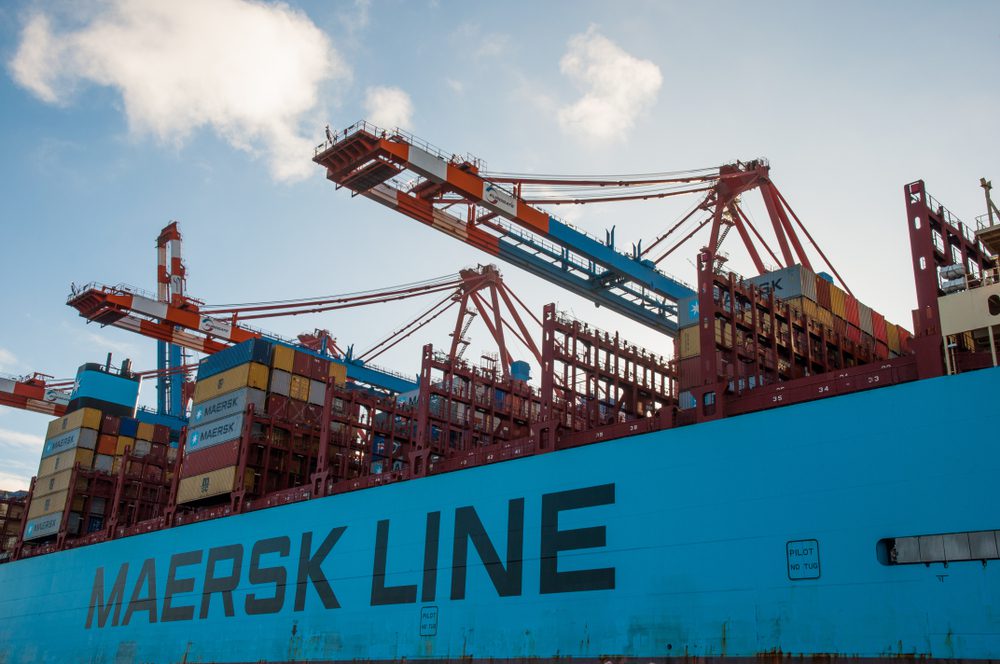Russian Oil Tankers Search for New Flags to Hide From Sanctions
A chunk of Russia’s oil tanker fleet is being forced to change the flag they sail under as US and UK sanctions heap pressure on Moscow’s shipping network.


Credit: Gestur Gislason/Shutterstock
Maersk Line Limited, operator of the largest U.S. flag commercial fleet, has settled with the U.S. Department of Labor, agreeing to change its safety reporting policies and compensate the mariner terminated for reporting safety concerns to the U.S. Coast Guard.
The settlement follows a whistleblower investigation by the department’s Occupational Safety and Health Administration (OSHA), which found Maersk’s policy violated federal law.
Maersk subsequently suspended the mariner and eventually terminated them in March 2021, for making the complaint without notifying the company first.
The settlement follows a three-day hearing in June, where Maersk challenged OSHA’s findings that the company had violated the seaman’s rights under the federal Seaman’s Protection Act by retaliating against them. OSHA found Maersk’s policy, which required employees to inform the company before contacting regulatory agencies, to be illegal.
In a statement to gCaptain, Maersk Line Limited (MLL) said it had agreed to the settlement with the Department and former mariner, but stands by its decision to terminate the mariner and it admits no liability or wrongdoing.
The investigation began in December 2020 after the mariner reported safety concerns aboard the Safmarine Mafadi, a 50,000-ton, 958-foot container ship, to the U.S. Coast Guard. The concerns included lifeboat equipment needing repair and replacement, crew members possibly consuming alcohol, improper supervision of cadet seamen, and a bilge system not preventing cargo holds from flooding.
“The Department of Labor will enforce workers’ protected rights as whistleblowers under federal law,” said Solicitor of Labor Seema Nanda. “No employer may violate whistleblower regulations or create policies that require employees to notify their employer before they report concerns to federal regulatory agencies.”
As part of the settlement reached after the hearing in Boston, Maersk agreed to remove the requirement for workers to notify the company before contacting the U.S. Coast Guard, refrain from retaliating against seamen who contact the USCG, provide supervisors with training on the revised policy, and distribute OSHA’s Seaman’s Protection Act Fact Sheet to seamen on its U.S. flagged vessels for the next two years.
“This case is an important affirmation that all mariners have the option to contact the U.S. Coast Guard directly for addressing a safety concern,” said Rear Admiral Wayne Arguin, Assistant Commandant for Prevention Policy for the U.S. Coast Guard. “Safety requires a team approach. The size, complexity, and importance of the marine transportation system demand that everyone work together to prevent casualties and minimize supply chain disruptions.”
Maersk also agreed to comply with regulations and compensate a terminated mariner for lost wages and damages, without admitting to violations of the Seaman’s Protection Act.
“This resolution is a victory for mariners aboard U.S.-flagged vessels worldwide,” said Assistant Secretary for Occupational Safety and Health Douglas L. Parker. “Workers who cope with the ocean’s natural hazards should never fear reporting concerns about their vessel’s safety.”
In a statement, Maersk Line Limited maintained that it terminated the mariner for not reporting unsafe conditions to the company in a timely manner, as required by MLL’s policy, which the Department of Labor found violated the Seaman’s Protection Act (SPA).
“MLL terminated this mariner for multiple reasons, including violation of its reporting policy, which required mariners to make initial and timely reports of unsafe or hazardous conditions on the vessel to the company for immediate attention,” the statement said. “Although MLL’s policy also required notification of unsafe or hazardous conditions to the Coast Guard, DOL found that this policy violated the SPA by requiring the mariner to notify the company before the Coast Guard. MLL’s policy had remained unchanged since 2017 in MLL’s Safety Management System where the policy was subject to annual review by the Coast Guard.”
The statement also pointed out that the arbitrator and Coast Guard found the mariner’s allegations to the Coast Guard unsubstantiated and not made in good faith. Rather, the arbitration decision and Coast Guard report both concluded that the whistleblower’s actions were motivated by personal reasons rather than safety concerns, and found no evidence of safety violations or regulatory breaches by the vessel or crew.
Maersk Line Limited, headquartered in Norfolk, operates the largest U.S. flag fleet in commercial service, employing about 700 U.S. mariners. It is the largest subsidiary of A.P. Moeller-Maersk, a global provider of maritime transport, logistics services, and terminal operations based in Denmark.
Join the gCaptain Club for curated content, insider opinions, and vibrant community discussions.


Join the 108,948 members that receive our newsletter.
Have a news tip? Let us know.







Maritime and offshore news trusted by our 108,948 members delivered daily straight to your inbox.



Essential news coupled with the finest maritime content sourced from across the globe.
Sign Up